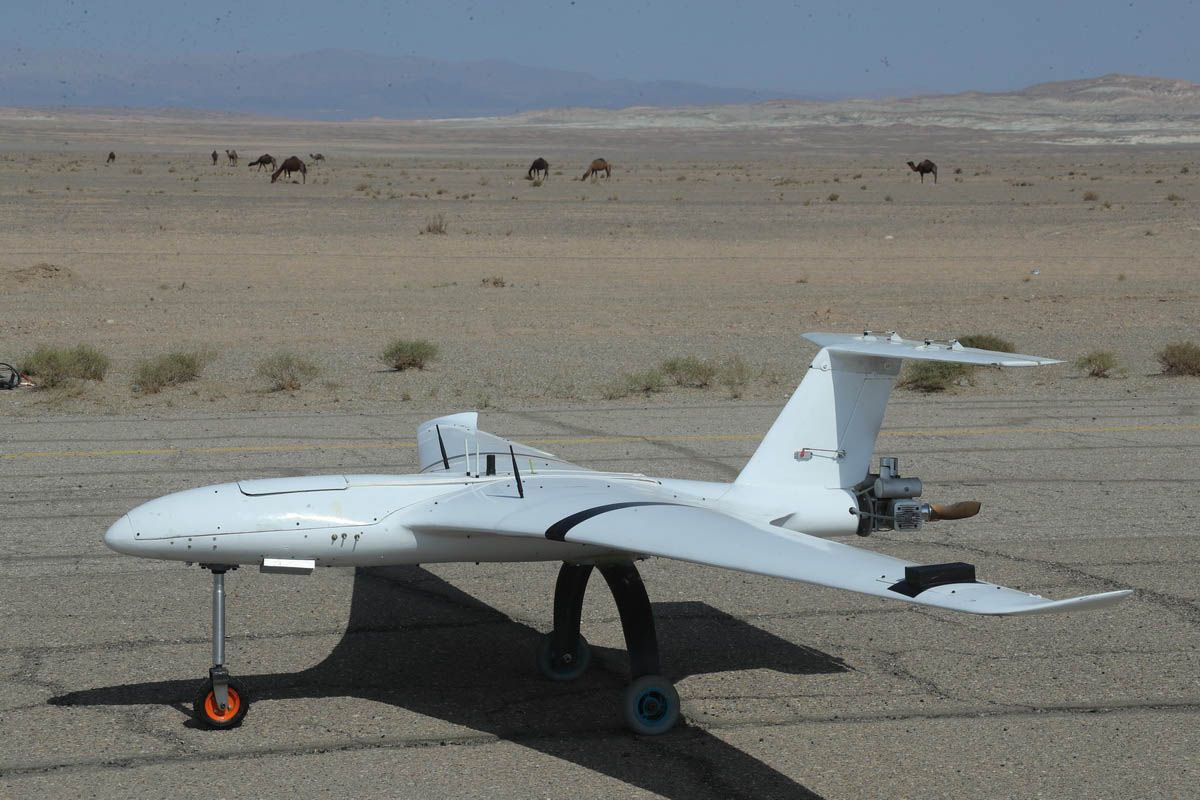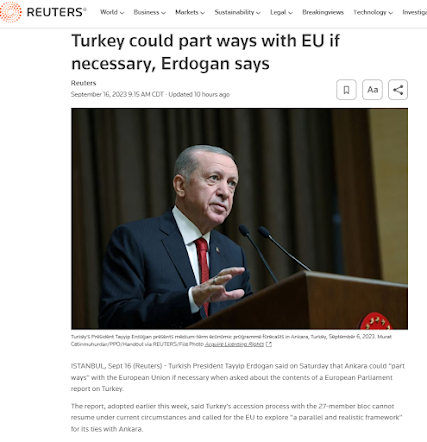
Media reports: Ukraine's allies proposed striking “Iranian drone production factories in Iran, Syria and Russia”
Days after the British newspaper published in a report, details obtained from a secret document submitted by Ukraine to its Western allies in the Group of Seven, which included a proposal to target "Iranian drone production factories in Iran, Syria and Russia", a drone attack hit Syria killed more than 80 people and injured hundreds more.
The British newspaper "The Guardian" revealed a secret document that indicated that Ukraine's Western allies had proposed launching missile strikes on drone production factories in Iran, Syria, and Russia.
In the context of a newspaper report on “European components in Iranian drones,” The Guardian revealed a 47-page document that the Ukrainian government submitted to the G7 governments last August.
As part of the discussion to take measures against Iranian drones, the newspaper revealed, citing the document, that among the proposals presented by Ukraine’s Western allies “launch missile strikes on the production factories of these drones in Iran and Syria, as well as on a potential production site located on the territory of the Russian Federation.” ".
The newspaper indicated in its report that such a measure “is likely to be refrained from by Western powers,” quoting from the document that “the Ukrainian Defense Forces can implement what was mentioned above, if the partners provide the necessary means of destruction.”
According to the secret document that Kiev sent to its Western allies, it called for “the use of long-range missiles to attack production sites in Iran, Syria, and Russia.”
It is noteworthy that, in mid-February, “The Guardian” had quoted American officials as saying that Iran had become a “global superpower in the field of drones.”
Analysts at the US Intelligence Agency also said that Iran “has emerged as a global leader in producing effective drones at an affordable price.”
Dozens dead in a drone attack on a military college in Homs
The Syrian Minister of Health, Hassan Al-Ghobash, announced Thursday that the initial toll was not final, amounting to 80 martyrs, including 6 women and 6 children, and about 240 injuries as a result of the terrorist attack on the Military College in Homs.
On Friday morning, Syrian official media counted the deaths of 89 people and the wounding of 277 others.
The Syrian Observatory for Human Rights, an anti-government organization, reported on Friday that the death toll had risen to 123, including 54 civilians, including 39 children and a woman related to officers. It was also estimated that 150 others were injured.
After the incident, the Syrian Foreign Ministry announced its condemnation of the "heinous crime" committed by "terrorist organizations." It stressed that it expresses the perpetrators’ persistence in their “brutal terrorist approach,” due to which the Syrian people have suffered over the past years.
It added, in her statement, that this attack “will not deter” Syria from moving forward in its effort to “eradicate the scourge of terrorism and its sponsors.”
The Syrian government declared three days of official mourning for the souls of the martyrs of the terrorist attack.
Media reports: the technology used in the attack originated in France; and Syria's army responds
The Syrian army launched artillery and missile bombardment, mainly targeting the headquarters of the Turkestan Party and the Migrant Brigade, in Jericho, Jisr al-Shughur, Idlib, Binnish, and Sarmin, in response to the terrorist attack that targeted the Military College in Homs.
According to media reports, the Turkestan Party and the Muhajireen Brigade "are the two factions that possess drone technology."
The information also indicated that parts of advanced drones “were transferred to the two factions three months ago, and France was the one that provided them with this technology.”
According to media sources, the information confirmed that a drone had been launched from areas under the control of the Turkestan Party, prior to targeting the Military College in Homs.
Early Warning
It hsould be noted that on October 4, Deputy Head of the Russian Reconciliation Center in Syria, Admiral Vadim Collet, reported that “terrorist groups are preparing to launch attacks on military sites belonging to both Moscow and Damascus.”
According to Collet, these groups are active in the provinces of Idlib, Aleppo, and Latakia.
Collet explained that the data the center received from Syrian intelligence agencies showed that the groups “Turkistan Islamic Party” and “Ansar al-Tawhid” were preparing to carry out “attacks on Russian and Syrian military bases using locally made drones.”
The two groups will use "long-range multiple missile launch systems," according to Collett.
The Deputy Head of the Russian Reconciliation Center added that the leadership of the Russian group and the Syrian Armed Forces "will take the necessary proactive measures in order to prevent armed provocations by terrorists."
The center's announcement comes after statements made by the head of Russian Foreign Intelligence, Sergei Naryshkin, to the effect that the United States of America is "preparing to assist militants to carry out terrorist attacks in Syria."
According to Naryshkin, these attacks affect "crowded public places and Syrian government institutions."
Over time, the conenctions among many of the otherwise seemingly isolated armed conflicts or coups, in Ukraine, Yemen, Sudan, Syria, Niger, Mali, and other places, become more evident.
For instance, it has been reported that Ukrainian special forces have been conducting operations outside Ukraine, including in Africa.
Since the start of the armed conflict in that country, Ukraine used drones very well, first to stop Russian troops advances toward Kyiv, using Turkish made drone, and there after using drone for attacks beyond the frontline, including attacks on Moscow. Ukrainian drone in Sudan last month reveals that Ukraine is now operating beyond its borders.











































